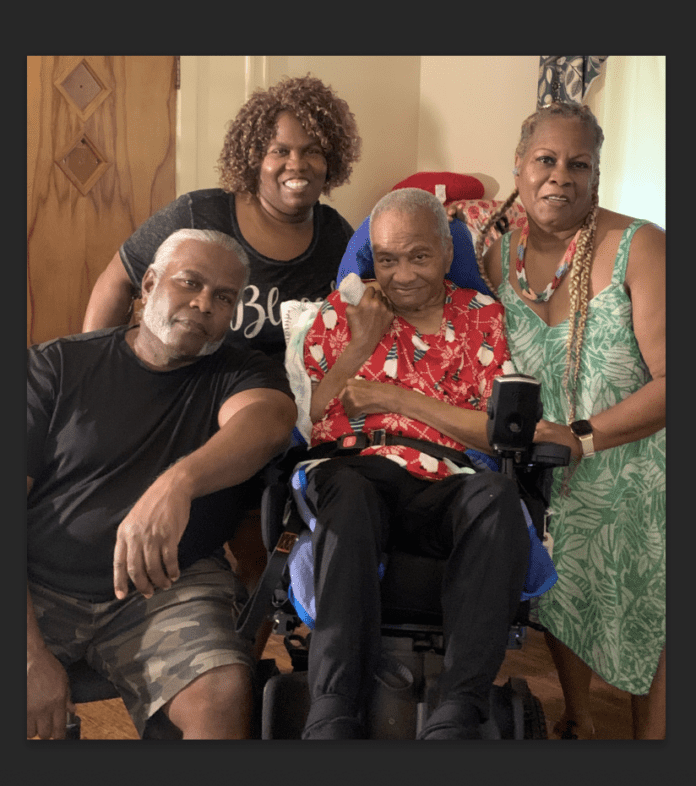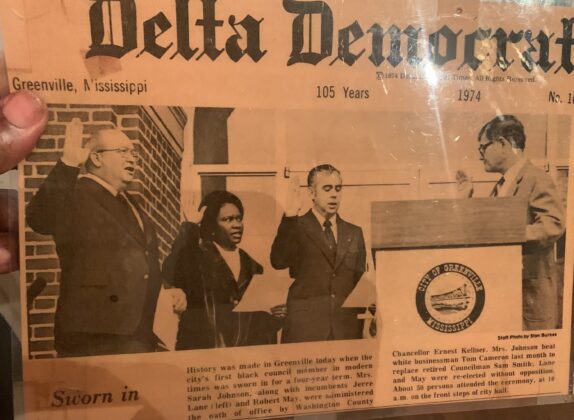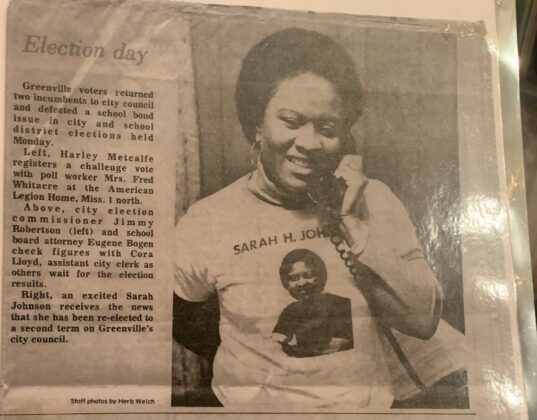Sarah Hughes Johnson, a beloved daughter of Greenville, Mississippi, respected for her Civil Rights advocacy and civic leadership, died May 9 at Region One Health in Memphis. She was 85.
Ms. Johnson’s life was a filled with accomplishments that helped improve the lives of her constituents, especially African Americans.
“Our mother was bold,” said Geneva Johnson, the eldest of Johnson’s four children. “She was courageous, and threats from white people who didn’t like what she was doing never fazed her. Mother just kept going, even after the divorce when she was left to raise four children alone. She was never distracted from her purpose.”
In 1973, Ms. Johnson became the first African American to serve on the Greenville City Council. Johnson was also the city’s vice-mayor.
Ms. Johnson served on the city council for 23 years. Upon retiring in 1996, she realized that she helped push the city forward for more than two decades.
Beyond Greenville’s racist past, her efforts spurred momentum for a new day in uniting the races in hope and optimism.
“Of course, as children, we didn’t understand, really, who our mother was,” said Karen Johnson, youngest of the four children. Mother was director of various organizations. She had lots of friends also working in the civil rights movement.
“We had different ‘nannies,’ who would look after us. We didn’t see mother as much as we would have liked, especially me because I’m the baby. But we at least could understand that her work was important.”
In 2013, then-Greenville mayor John Cox met Johnson, along with family members and officially renamed a Greenville street, “Sarah H. Johnson Lane.”
Even at 75, sitting in her wheelchair, Johnson made a speech during the event.
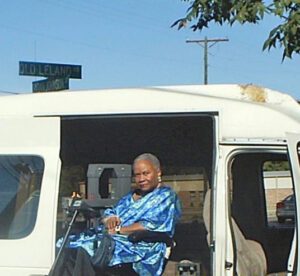
“Praise God and thank you, Jesus,” she began. “I want to thank all of you for coming out to this occasion…”
The Delta Daily News reported that Ms. “Johnson won her political campaign in 1973 during a time when racism and Jim Crow laws were still in full effect despite being revoked years prior…”
“Throughout her career, Johnson was known for her tenacity and willingness to help the poor, middle-class, and the elderly. Her goal was always to help those who were less fortunate. She will be remembered for embodying the characteristics that the community needs to see in its leaders.”
Greenville Mayor Errick D. Simmons released a statement, expressing the city’s shock and sadness shortly after Johnson’s death. Simmons said hearts were heavy in Greenville for the loss of “Mrs. Johnson.”
“Mrs. Johnson will be remembered, not only as a municipal leader, but also as a community activist who loved the City of Greenville, her family, and all its citizens,” Simmons wrote. “Mrs. Johnson’s determination, dedicated service, and courage opened the doors of City Hall for me and every other Black municipal leader in Greenville.”
Johnson was employed by Mississippi Action for Community Education, where she was the area director for the People’s Education Program (Head Start). Johnson also served as a 1972 Fellow of the Mississippi Institute of Politics and attended several affairs by invitation to the White House during President Jimmy Carter’s administration.
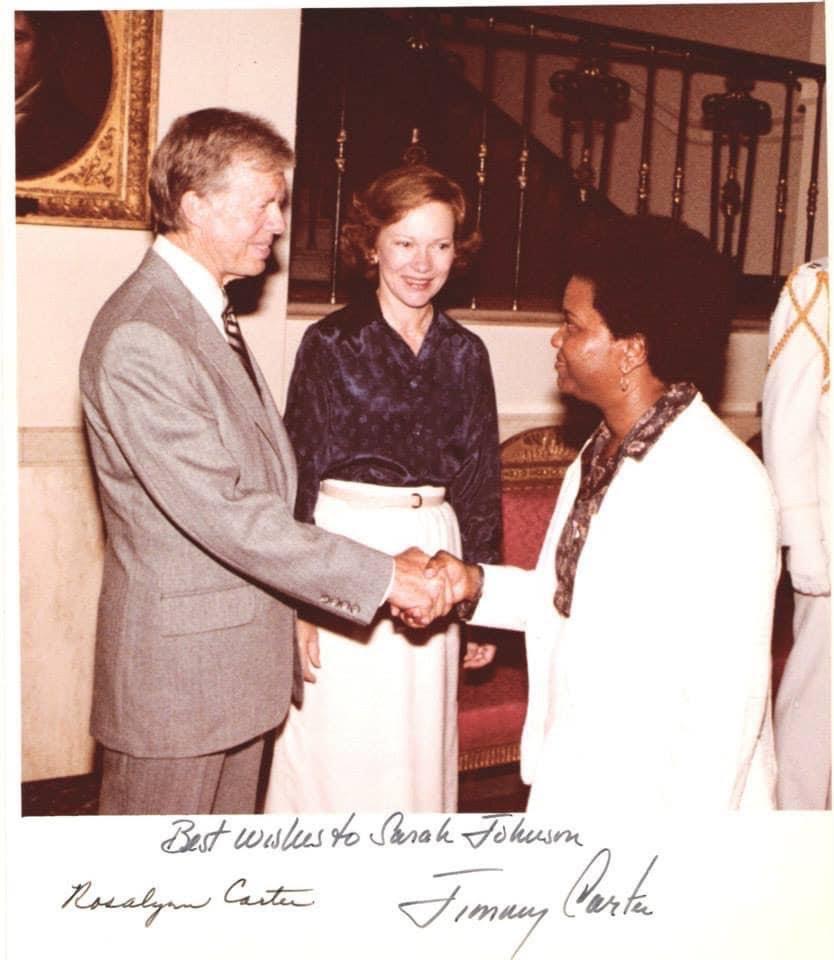
Sarah Hughes was the fourth child of 13 children. she never knew who her father was. Her birth mother gave her to an aunt, who had just lost a baby.
“There was never a formal adoption, or anything like that,” said Geneva Johnson. “My mom’s birth mother gave her sister the baby because her baby died. So really, the woman my mother called her mother was really her auntie. That’s just what families did back then.
“She was born in Allendale, South Carolina. Mother and Daddy came later to Greenville because he was moved to a new church. Dad was a United Methodist pastor.”
Sarah Hughes met Ned Johnson at Clark College. She was a first-year student, and Ned Johnson was attending Gammon Seminary. Although Hughes won a full-time scholarship as valedictorian of her high school, she left after her freshman year. After starting a family, Johnson was assigned a new church in Greenville.
Unfortunately, the union did not last, and Ned Johnson left Greenville, never to return.
“My dad left when I was three years old,” said Karen Johnson. “But my mother was always there — still out there fighting for her community. Mother and other community activists decided that the four Johnson children will go to the predominantly white school to force integration.
“And I didn’t mind going to school with white children. It was just not having the frilly, little dresses that bothered me. I was about six or seven.”
Despite a very painful divorce and all the hatred the white establishment could muster, Johnson never lost sight of her vision that all of Greenville’s children would enjoy a free, public, and equal education and every citizen could freely exercise their right to vote without threat or intimidation.
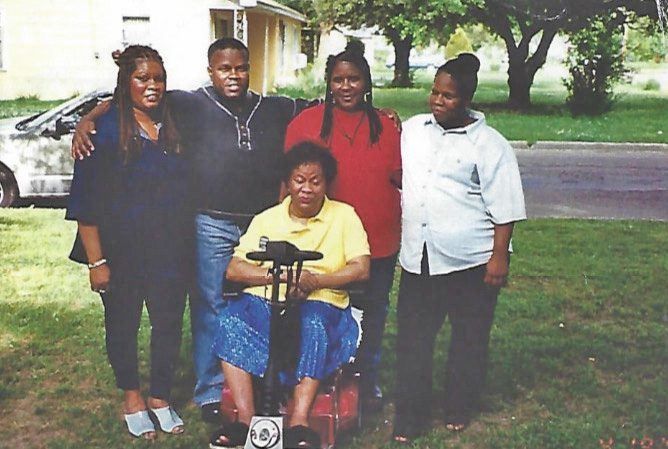
“This Mother’s Day was going to be extra special,” said Geneva Johnson, prior to the holiday. “Each year, that day becomes so precious because you begin to realize your mother won’t be with you always. I thought we would enjoy her today. She went on to be with the Lord, but we’re still going to enjoy her.
“We’ll share memories and laugh about so many things we thought were funny as children. We’ll call our brother Ned so we can all remember her together. It will be hard, but we will get through it. We are all pretty tough. We got it from our mother.”



